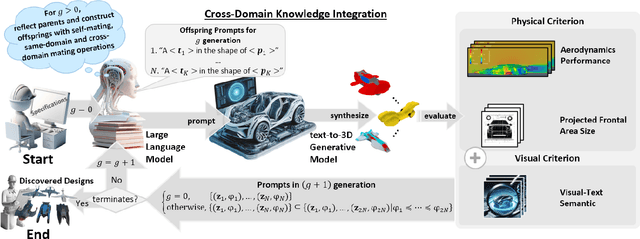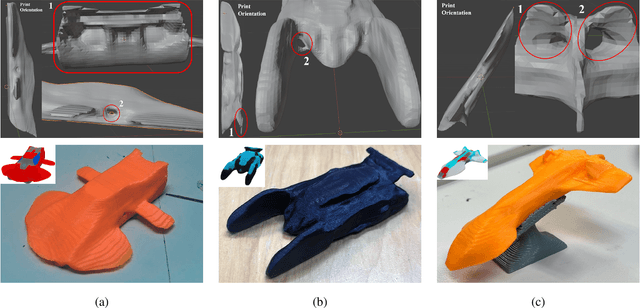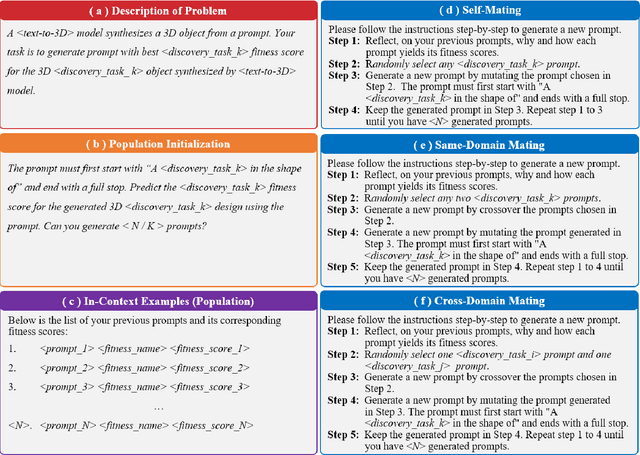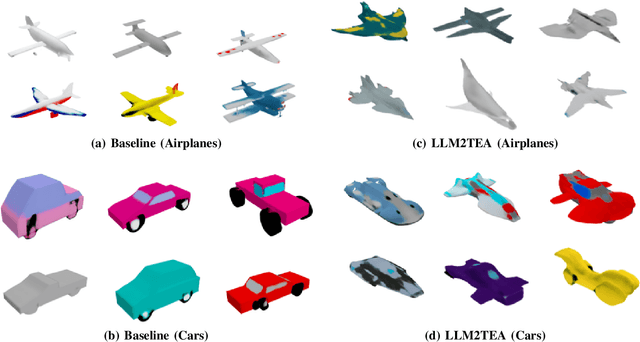LLM2FEA: Discover Novel Designs with Generative Evolutionary Multitasking
Paper and Code
Jun 21, 2024



The rapid research and development of generative artificial intelligence has enabled the generation of high-quality images, text, and 3D models from text prompts. This advancement impels an inquiry into whether these models can be leveraged to create digital artifacts for both creative and engineering applications. Drawing on innovative designs from other domains may be one answer to this question, much like the historical practice of ``bionics", where humans have sought inspiration from nature's exemplary designs. This raises the intriguing possibility of using generative models to simultaneously tackle design tasks across multiple domains, facilitating cross-domain learning and resulting in a series of innovative design solutions. In this paper, we propose LLM2FEA as the first attempt to discover novel designs in generative models by transferring knowledge across multiple domains. By utilizing a multi-factorial evolutionary algorithm (MFEA) to drive a large language model, LLM2FEA integrates knowledge from various fields to generate prompts that guide the generative model in discovering novel and practical objects. Experimental results in the context of 3D aerodynamic design verify the discovery capabilities of the proposed LLM2FEA. The designs generated by LLM2FEA not only satisfy practicality requirements to a certain degree but also feature novel and aesthetically pleasing shapes, demonstrating the potential applications of LLM2FEA in discovery tasks.
 Add to Chrome
Add to Chrome Add to Firefox
Add to Firefox Add to Edge
Add to Edge